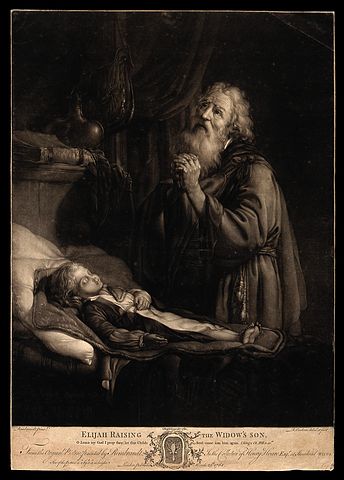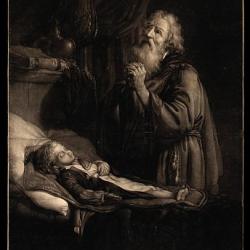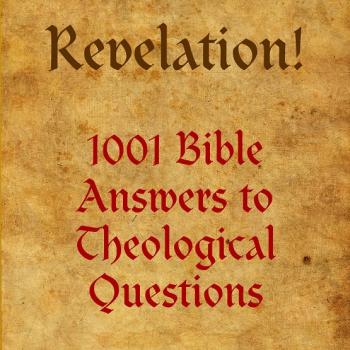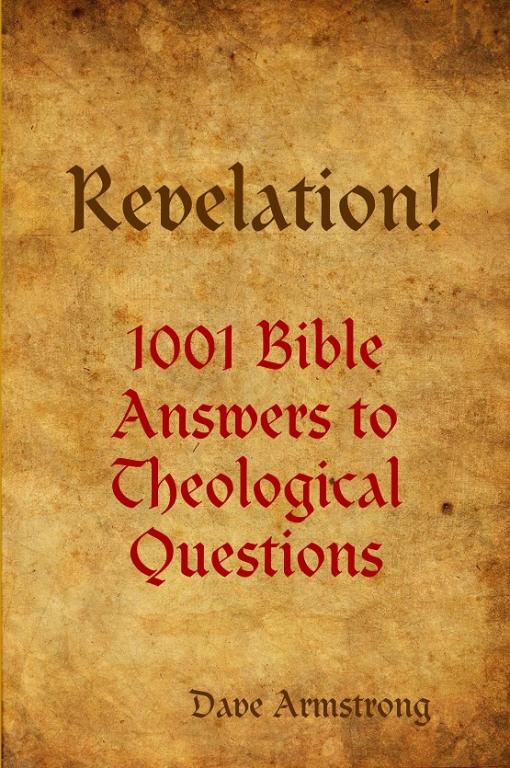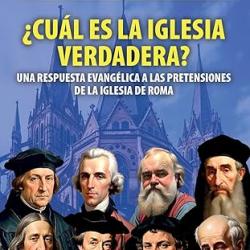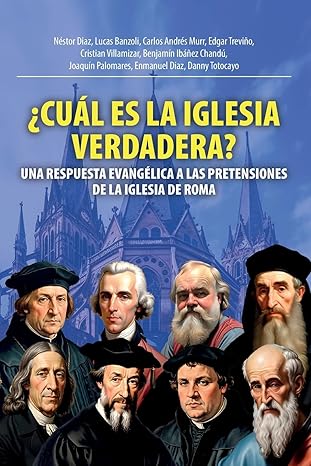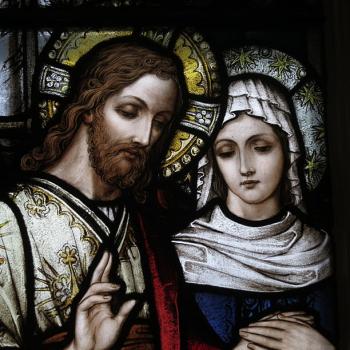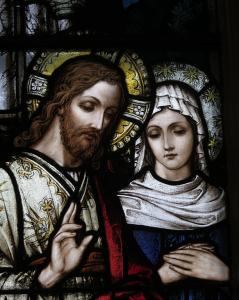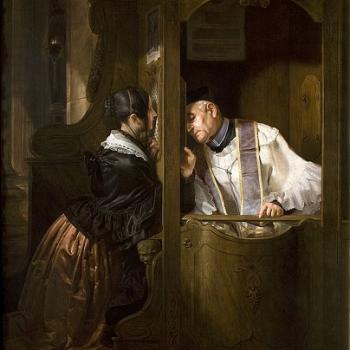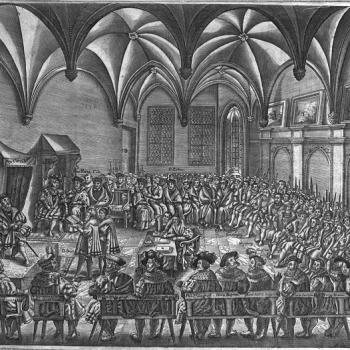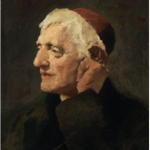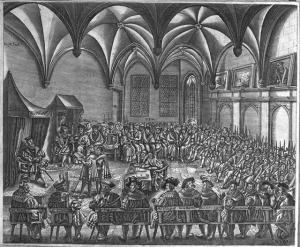
“Please Hit ‘Subscribe’”! If you have received benefit from this or any of my other 4,600+ articles, please follow this blog by signing up (w your email address) on the sidebar to the right (you may have to scroll down a bit), above where there is an icon bar, “Sign Me Up!”: to receive notice when I post a new blog article. This is the equivalent of subscribing to a YouTube channel. Please also consider following me on Twitter / X and purchasing one or more of my 55 books. All of this helps me get more exposure, and (however little!) more income for my full-time apologetics work. Thanks so much and happy reading!
***
See my introductory article for this series. Excerpts from the Augsburg Confession (“AC”) will be identified and indented, in regular black font. Replies from the Catholic Confutation (“C”) will be in blue, and counter-replies from the Lutheran Apology of the Augsburg Confession (“AAC”) in green. Neither will be indented. My own comments will be in regular black font. My own scriptural citations will be drawn from the RSV.
***
Article IV. Of Justification.
1 Also they teach that men cannot be justified before God by their own strength, merits, or works, but are freely justified for Christ’s sake, through faith, when they believe that they are received into favor, and that their sins are forgiven for Christ’s sake, who, by His death, has made satisfaction for our sins. This faith God imputes for righteousness in His sight. Rom. 3 and 4.
To Article IV. In the fourth article the condemnation of the Pelagians, who thought that man can merit eternal life by his own powers without the grace of God, is accepted as Catholic and in accordance with the ancient councils, for the Holy Scriptures expressly testify to this. John the Baptist says: “A man can receive nothing, except it be given him from heaven,” John 3:27 “Every good gift and every perfect gift is from above, and comes down from the Father of lights,” James 1:17. Therefore “our sufficiency is of God,” 2 Cor 3:5. And Christ says: “No man can come to me, Except the Father, which hath sent me, draw him,” John 6:44 And Paul: “What hast thou that thou didst not receive?” I Cor 4:7. For if any one should intend to disapprove of the merits that men acquire by the assistance of divine grace, he would agree with the Manichaeans rather than with the Catholic Church. For it is entirely contrary to holy Scripture to deny that our works are meritorious. For St. Paul says “I have fought a good fight, I have finished my course, I have kept the faith; henceforth there is laid up for me a crown of righteousness, which the Lord, the righteous Judge, shall give me at that day,” 2 Tim. 4:7 & 8. And to the Corinthians he wrote “We must all appear before the judgment-seat of Christ, that every one may receive the things done in his body, according to that he hath done, whether it be good or bad,” 2 Cor. 5:10. For where there are wages there is merit. The Lord said to Abraham: “Fear not, Abraham, I am thy shield and thy exceeding great reward,” Gen 15:l. And Isaiah says: “Behold, his reward is with him, and his work before him,” Isa. 40:10; and, chapter 58:7, 8: “Deal they bread to the hungry, and thy righteousness shall go before thee; the glory of the Lord shall go before thee; the glory of the Lord shall gather thee up.” So too the Lord to Cain: “If thou doest well shalt thou not be accepted?” Gen. 4:7. So the parable in the Gospel declares that we have been hired for the Lord’s vineyard, who agrees with us for a penny a day, and says: “Call the laborers and give them their hire,” Matt 20:8. So Paul, knowing the mysteries of God, says: “Every man shall receive his own reward, according to his own labor,” I Cor. 3:8. 6. Nevertheless, all Catholics confess that our works of themselves have no merit, but that God’s grace makes them worthy of eternal life. Thus St. John says: “They shall walk with me in white; for they are worthy,” Rev. 3:4. And St Paul says to the Colossians, 1:12: “Giving thanks unto the Father, which hath made us meet to be partakers of the inheritance of the saints in light.”
Article V. Of the Ministry.
That we may obtain this faith, the Ministry of Teaching the Gospel and administering the Sacraments was instituted. For through the Word and Sacraments, as through instruments, the Holy Ghost is given, who works faith; where and when it pleases God, in them that hear the Gospel, to wit, that God, not for our own merits, but for Christ’s sake, justifies those who believe that they are received into grace for Christ’s sake. They condemn the Anabaptists and others who think that the Holy Ghost comes to men without the external Word, through their own preparations and works.
To Article V. In the fifth article the statement that the Holy Ghost is given by the Word and sacraments, as by instruments, is approved. For thus it is written, Acts 10:44: “While Peter yet spoke these words, the Holy Ghost fell on all them which heard the word.” And John 1:33: “The same is He which baptizeth with the Holy Ghost.” The mention, however, that they here make of faith is approved so far as not Faith alone, which some incorrectly teach, but faith which worketh by love, is understood, as the apostle teaches aright in Gal 5:3. For in baptism there is an infusion, not of faith alone, but also, at the same time, of hope and love, as Pope Alexander declares in the canon Majores concerning baptism and its effect; which John the Baptist also taught long before, saying, Luke 3:16: “He shall baptize you with the Holy Ghost and with fire.”
Article VI. Of New Obedience.
Also they teach that this faith is bound to bring forth good fruits, and that it is necessary to do good works commanded by God, because of God’s will, but that we should not rely on those works to merit justification before God. For remission of sins and justification is apprehended by faith, as also the voice of Christ attests: When ye shall have done all these things, say: We are unprofitable servants. Luke 17:10. The same is also taught by the Fathers. For Ambrose says: It is ordained of God that he who believes in Christ is saved, freely receiving remission of sins, without works, by faith alone.
To Article VI. Their Confession in the sixth article that faith should bring forth good fruits is acceptable and valid since “faith without works is dead,” James 2:17, and all Scripture invites us to works. For the wise man says: “Whatsoever thy hand findeth to do, do it with thy might.” Eccles. 9:10. “And the Lord had respect to Abel and to his offering,” Gen. 4:4. He saw that Abraham would “command his Children and his household after him to keep the way of the Lord, and to do justice and judgment,” Gen. 18:19. And: “By myself have I sworn, saith the Lord, for because thou hast done this thing I will bless thee and multiply thy seed.” Gen 22:16. Thus he regarded the fast of the Ninevites, Jonah 3, and the lamentations and tears of King Hezekiah, 4:2; 2 Kings 20. For this cause all the faithful should follow the advice of St. Paul: “As we have therefore opportunity, let us do good unto all men, especially unto them who are of the household of faith,” Gal. 6:10. For Christ says: “The night cometh when no man can work.” John 9:4. But in the same article their ascription of justification to faith alone is diametrically opposite the truth of the Gospel by which works are not excluded; “because glory, honor and peace to every man that worketh good,” Rom. 2:10. Why? because David, Ps. 62:12; Christ, Matt. 16:27; and Paul, Rom. 2:6 testify that God will render to every one according to his works. Besides Christ says: “Not every one that saith unto me Lord, Lord shall enter into the kingdom of heaven; but he that doeth the will of my Father,” Matt. 7:21. 4. Hence however much one may believe, if he work not what is good, he is not a friend of God. “Ye are my friends,” says Christ, “if ye do whatsoever I command you,” John 15:14. On this account their frequent ascription of justification to faith is not admitted since it pertains to grace and love. For St. Paul says: “Though I have all faith so that I could remove mountains and have not charity, I am nothing.” 1 Cor. 13:2. Here St. Paul certifies to the princes and the entire Church that faith alone does not justify. Accordingly he teaches that love is the chief virtue, Col. 3:14: “Above all these things put on charity, which is the bond of perfectness.” Neither are they supported by the word of Christ: “When ye shall have done all these things, say We are unprofitable servants,” Luke 17:10. For if the doors ought to be called unprofitable, how much more fitting is it to say to those who only believe, When ye shall have believed all things say, We are unprofitable servants! This word of Christ, therefore, does not extol faith without works, but teaches that our works bring no profit to God; that no one can be puffed up by our works; that, when contrasted with the divine reward, our works are of no account and nothing. Thus St. Paul says: “I reckon that the sufferings of this present time are not worthy to be compared to the glory which shall be revealed in us,” Rom. 8:18. For faith and good works are gifts of God, whereby, through God’s mercy, eternal life is given. So, too, the citation at this point from Ambrose is in no way pertinent, since St. Ambrose is here expressed declaring his opinion concerning legal works. For he says: “Without the law,” but, “Without the law of the Sabbath, and of circumcision, and of revenge.” And this he declares the more clearly on Rom. 4, citing St. James concerning the justification of Abraham without legal works before circumcision. For how could Ambrose speak differently in his comments from St. Paul in the text when he says: “Therefore by the deeds of the law there shall no flesh be justified in his sight?” Therefore, finally, he does not exclude faith absolutely, but says: “We conclude that a man is justified by faith without the deeds of the law.”
Article XX. Of Good Works.
1 Our teachers are falsely accused of forbidding Good Works. 2 For their published writings on the Ten Commandments, and others of like import, bear witness that they have taught to good purpose concerning all estates and duties of life, as to what estates of life and what works in every calling be pleasing to God. 3 Concerning these things preachers heretofore taught but little, and urged only childish and needless works, as particular holy-days, particular fasts, brotherhoods, pilgrimages, services in honor of saints, the use of rosaries, monasticism, and such like. 4 Since our adversaries have been admonished of these things, they are now unlearning them, and do not preach these unprofitable works as heretofore. 5 Besides, they begin to mention faith, of which there was heretofore marvelous silence. 6 They teach that we are justified not by works only, but they conjoin faith and works, and say that we are justified by faith and works. 7 This doctrine is more tolerable than the former one, and can afford more consolation than their old doctrine.
8 Forasmuch, therefore, as the doctrine concerning faith, which ought to be the chief one in the Church, has lain so long unknown, as all must needs grant that there was the deepest silence in their sermons concerning the righteousness of faith, while only the doctrine of works was treated in the churches, our teachers have instructed the churches concerning faith as follows:—
9 First, that our works cannot reconcile God or merit forgiveness of sins, grace, and justification, but that we obtain this only by faith when we believe that we are received into favor for Christ’s sake, who alone has been set forth the Mediator and Propitiation, 1 Tim. 2:5, in order that the Father may be reconciled through Him. 10 Whoever, therefore, trusts that by works he merits grace, despises the merit and grace of Christ, and seeks a way to God without Christ, by human strength, although Christ has said of Himself: I am the Way, the Truth, and the Life. John 14:6.
11 This doctrine concerning faith is everywhere treated by Paul, Eph. 2:8: By grace are ye saved through faith; and that not of your selves; it is the gift of God, not of works, etc.
12 And lest any one should craftily say that a new interpretation of Paul has been devised by us, this entire matter is supported by the testimonies of the Fathers. For 13 Augustine, in many volumes, defends grace and the righteousness of faith, over against the merits of works. 14 And Ambrose, in his De Vocatione Gentium, and elsewhere, teaches to like effect. For in his De Vocatione Gentium he says as follows: Redemption by the blood of Christ would become of little value, neither would the preeminence of man’s works be superseded by the mercy of God, if justification, which is wrought through grace, were due to the merits going before, so as to be, not the free gift of a donor, but the reward due to the laborer.
15 But, although this doctrine is despised by the inexperienced, nevertheless God-fearing and anxious consciences find by experience that it brings the greatest consolation, because consciences cannot be set at rest through any works, but only by faith, when they take the sure ground that for Christ’s sake they have a reconciled God. As Paul teaches Rom. 5:1: 16Being justified by faith, we have peace with God. 17 This whole doctrine is to be referred to that conflict of the terrified conscience, neither can it be understood apart from that conflict. Therefore 18 inexperienced and profane men judge ill concerning this matter, who dream that Christian righteousness is nothing but civil and philosophical righteousness.
19 Heretofore consciences were plagued with the doctrine of works, they did not hear the consolation from the Gospel. 20 Some persons were driven by conscience into the desert, into monasteries hoping there to merit grace by a monastic life. 21 Some also devised other works whereby to merit grace and make satisfaction for sins. 22 Hence there was very great need to treat of, and renew, this doctrine of faith in Christ, to the end that anxious consciences should not be without consolation but that they might know that grace and forgiveness of sins and justification are apprehended by faith in Christ.
23 Men are also admonished that here the term “faith” does not signify merely the knowledge of the history, such as is in the ungodly and in the devil, but signifies a faith which believes, not merely the history, but also the effect of the history—namely, this article: the forgiveness of sins, to wit, that we have grace, righteousness, and forgiveness of sins through Christ.
24 Now he that knows that he has a Father gracious to him through Christ, truly knows God; he knows also that God cares for him, and calls upon God; in a word, he is not 25 without God, as the heathen. For devils and the ungodly are not able to believe this article: the forgiveness of sins. Hence, they hate God as an enemy, call not upon Him, 26 and expect no good from Him. Augustine also admonishes his readers concerning the word “faith,” and teaches that the term “faith” is accepted in the Scriptures not for knowledge such as is in the ungodly but for confidence which consoles and encourages the terrified mind.
27 Furthermore, it is taught on our part that it is necessary to do good works, not that we should trust to merit grace by them, but because it is the will of God. 28 It is only by faith that forgiveness of sins is apprehended, and that, for nothing. 29 And because through faith the Holy Ghost is received, hearts are renewed and endowed with new affections, so as to be able to bring forth good works. 30 For Ambrose says: Faith is the mother of a good will and right doing. 31 For man’s powers without the Holy Ghost are full of ungodly affections, and are too weak to do works which are good in God’s sight. 32 Besides, they are in the power of the devil who impels men to divers sins, 33 to ungodly opinions, to open crimes. This we may see in the philosophers, who, although they endeavored to live an honest life could not succeed, 34 but were defiled with many open crimes. Such is the feebleness of man when he is without faith and without the Holy Ghost, and governs himself only by human strength.
35 Hence it may be readily seen that this doctrine is not to be charged with prohibiting good works, but rather the more to be commended, because it shows how we are enabled to do good works. 36 For without faith human nature can in no wise do the works of the First or of the Second Commandment. 37 Without faith it does not call upon God, nor expect anything from God, nor bear the cross, but seeks, and trusts in, man’s help. 38 And thus, when there is no faith and trust in God all manner of lusts and human devices rule in the heart. 39 Wherefore Christ said, John 15:5: Without Me ye can do nothing; 40 and the Church sings:
Lacking Thy divine favor,
There is nothing found in man,
Naught in him is harmless.
To Article XX. In the twentieth article, which does not contain so much the confession of the princes and cities as the defense of the preachers, there is only one thing that pertains to the princes and cities—viz. concerning good works, that they do not merit the remission of sins, which, as it has been rejected and disapproved before, is also rejected and disapproved now. For the passage in Daniel is very familiar: “Redeem thy sins with alms,” Dan. 4:24; and the address of Tobit to his son: “Alms do deliver from death and suffereth not to come into darkness,” Tobit 4:10; and that of Christ: “Give alms of such things as ye have, and behold all things are clean unto you,” Luke 11:41. If works were not meritorious why would the wise man say: “God will render a reward of the labors of his saints”? Wisd. 10:17. Why would St. Peter so earnestly exhort to good works, saying: “Wherefore the rather, brethren, give diligence by good works to make your calling and election sure”? 2 Pet. 1:19. Why would St. Paul have said: “God is not unrighteous to forget your work and labor of love, which ye have showed towards his name”? Heb. 6:10. Nor by this do we reject Christ’s merit but we know that our works are nothing and of no merit unless by virtue of Christ’s passion. We know that Christ is “the way, the truth and the life,”. John 14:6. But Christ, as the Good Shepherd, who “began to do and teach,” Acts 1:1, has given us an example that as he has done we also should do, John 13:15. He also went through the desert by the way of good works, which all Christians ought to pursue, and according to his command bear the cross and follow him. Matt. 10:38; 16:24. He who bears not the cross, neither is nor can be Christ’s disciple. That also is true which John says: “He that saith he abideth in him ought himself also so to walk, even as he walked,” 1 John 2:6. Moreover, this opinion concerning good works was condemned and rejected more than a thousand years ago in the time of Augustine.
Melanchthon’s answer to this is extremely long (since this deals with one of the two “pillars” of Protestantism and Articles IV-VI and XX), so I can’t reply to all of it. I will, however, make a significant counter-reply. First of all, it should be understood that Philip Melanchthon had introduced a completely novel view of justification (going beyond even Luther’s stance). No one need take my “biased Catholic” word on that. Protestant scholar and expert on the history of the doctrine of justification, Alister McGrath strongly asserts it:
Whereas Augustine taught that the sinner is made righteous in justification, Melanchthon taught that he is counted as righteous or pronounced to be righteous. For Augustine, ‘justifying righteousness’ is imparted; for Melanchthon, it is imputed in the sense of being declared or pronounced to be righteous. Melanchthon drew a sharp distinction between the event of being declared righteous and the process of being made righteous, designating the former ‘justification’ and the latter ‘sanctification’ or ‘regeneration.’ For Augustine, these were simply different aspects of the same thing . . .
The importance of this development lies in the fact that it marks a complete break with the teaching of the church up to that point. From the time of Augustine onwards, justification had always been understood to refer to both the event of being declared righteous and the process of being made righteous. . . .
The Council of Trent . . . reaffirmed the views of Augustine on the nature of justification . . . the concept of forensic justification actually represents a development in Luther’s thought . . . . Trent maintained the medieval tradition, stretching back to Augustine, which saw justification as comprising both an event and a process . . . (Reformation Thought: An Introduction, 2nd edition, Grand Rapids, Michigan: Baker Book House, 1993, 108-109, 115)
Protestant apologist Norman Geisler concurs with this view as well.
. . . since the adversaries understand neither what the remission of sins, nor what faith, nor what grace, nor what righteousness is, they sadly corrupt this topic, and obscure the glory and benefits of Christ, . . .
In other words, the unbroken, unanimous soteriological tradition described by Protestants McGrath and Geisler (including the patron saint of Protestantism, St. Augustine), didn’t have the slightest understanding of faith or grace or righteousness or the benefits of Christ. Fortunately, Melanchthon arose in order to explain to all of those poor ignorant misguided folks, the true doctrine of justification, that had never been seen before.
the adversaries select the Law, because human reason naturally understands, in some way, the Law (for it has the same judgment divinely written in the mind); [the natural law agrees with the law of Moses, or the Ten Commandments] and by the Law they seek the remission of sins and justification. Now, the Decalog requires not only outward civil works, which reason can in some way produce, but it also requires other things placed far above reason, namely, truly to fear God, truly to love God, truly to call upon God, truly to be convinced that God hears us, and to expect the aid of God in death and in all afflictions; finally, it requires obedience to God, in death and all afflictions, so that we may not flee from these or refuse them when God imposes them. Here the scholastics, having followed the philosophers, teach only a righteousness of reason, namely, civil works, and fabricate besides that without the Holy Ghost reason can love God above all things.
Johann Eck, in the C (“To Article V”) mentioned the “Holy Ghost” four times, yet Melanchthon has the insolent audacity to claim that Catholics deny this crucial, indispensable role of the Holy Spirit. Equally outrageous is the attribution of this heinous view to the “scholastics”. St. Thomas Aquinas, is — all agree — the ultimate exemplar of that viewpoint, and he wrote the following about natural reason, grace, and the Holy Spirit:
. . . in matters directed to the supernatural end, to which man’s reason moves him, according as it is, in a manner, and imperfectly, informed by the theological virtues, the motion of reason does not suffice, unless it receive in addition the prompting or motion of the Holy Ghost, according to Rm. 8:14,17: “Whosoever are led by the Spirit of God, they are sons of God . . . and if sons, heirs also”: and Ps. 142:10: “Thy good Spirit shall lead me into the right land,” because, to wit, none can receive the inheritance of that land of the Blessed, except he be moved and led thither by the Holy Ghost. Therefore, in order to accomplish this end, it is necessary for man to have the gift of the Holy Ghost. (ST [Summa Theologica] 1-2, q. 68, a. 2c)
By the theological and moral virtues, man is not so perfected in respect of his last end, as not to stand in continual need of being moved by the yet higher promptings of the Holy Ghost . . . (ST 1-2, q. 68, a. 2, ad 2)
. . . man, by his natural endowments, cannot produce meritorious works proportionate to everlasting life; and for this a higher force is needed, viz. the force of grace. And thus without grace man cannot merit everlasting life . . . (ST 1-2, q. 109, a. 5c)
I collected eleven additional similar statements in the book that I edited, The Quotable Summa Theologica (Jan. 2013, 200 pages), on pages 90-93, in the section, “Grace Alone (for Justification and Salvation).”
If Melanchthon is implying that the Ten Commandments (and other commandments of God) are irrelevant to salvation itself (and are relegated only to non-salvific sanctification), note what Jesus thought about it:
Matthew 5:16-20 Let your light so shine before men, that they may see your good works and give glory to your Father who is in heaven. [17] “Think not that I have come to abolish the law and the prophets; I have come not to abolish them but to fulfil them. [18] For truly, I say to you, till heaven and earth pass away, not an iota, not a dot, will pass from the law until all is accomplished. [19] Whoever then relaxes one of the least of these commandments and teaches men so, shall be called least in the kingdom of heaven; but he who does them and teaches them shall be called great in the kingdom of heaven. [20] For I tell you, unless your righteousness exceeds that of the scribes and Pharisees, you will never enter the kingdom of heaven.
Matthew 19:16-19 And behold, one came up to him, saying, “Teacher, what good deed must I do, to have eternal life?” [17] And he said to him, “Why do you ask me about what is good? One there is who is good. If you would enter life, keep the commandments.” [18] He said to him, “Which?” And Jesus said, “You shall not kill, You shall not commit adultery, You shall not steal, You shall not bear false witness, [19] Honor your father and mother, and, You shall love your neighbor as yourself.”
Note how in both sayings, keeping the commandments (i.e., basically good works and expressions of love as opposed to faith alone) was central in the process of salvation and attaining to heaven and eternal life. The rich young ruler expressly asked Jesus how one can attain “eternal life.” The first thing Jesus mentions isn’t faith, but observing the ten commandments. Then He later urged him to sell all he had, in order to be saved: another meritorious work, and not (needless to say) faith. That’s not to say no faith is involved; but I am highlighting how important works also are in the entire equation of justification and salvation.
In this manner they teach that men merit the remission of sins by doing what is in them, i.e., if reason, grieving over sin, elicit an act of love to God, or for God’s sake be active in that which is good.
It’s not just “reason” (as St. Thomas Aquinas clarified in the above citations). It is man cooperating with God’s grace. C expressly stated that in the first sentence of To Article IV: “the condemnation of the Pelagians, who thought that man can merit eternal life by his own powers without the grace of God, is accepted as Catholic and in accordance with the ancient councils, for the Holy Scriptures expressly testify to this.” Likewise, in To Article XX, Eck reaffirmed: “Nor by this do we reject Christ’s merit but we know that our works are nothing and of no merit unless by virtue of Christ’s passion.”
St. Augustine famously observed (and we fully agree) that merit was simply “God crowning His own gifts.” As so often in these theological disputes, the Protestant is quixotically warring against a caricature or “straw man” of Catholic teaching, rather than the actual thing. The tied Pelagian — or sometimes, Semi-Pelagian — charge sent our way is one of the most constant and slanderous. It’s sad. I hate to keep pointing this out, but I can’t deny the obvious.
If we can be justified by reason and the works of reason, wherefore is there need of Christ or regeneration [as Peter declares, 1 Pet. 1:18ff ]? . . . the philosophic righteousness must be sought after. . . . even great theologians at Louvain, Paris, etc., have known nothing of any other godliness or righteousness (although every letter and syllable in Paul teaches otherwise) than the godliness which philosophers teach.
Classic case in point. We notice that Melanchthon doesn’t offer any citation along these lines from an official, magisterial Catholic source. The ultimate reason for that would be because it doesn’t exist. Thus, Melanchthon chooses to fight the straw man rather than produce actual documentation of supposed Catholic espousal or Pelagianism, and ridiculously claims that we supposedly deny the necessity of Christ’s redemptive, salvific work for us and of regeneration. In fact, the Catholic view of baptismal regeneration is in fact stronger and more powerful in terms of grace and gifts received, than the Lutheran view.
We see books extant in which certain sayings of Christ are compared with the sayings of Socrates, Zeno, and others, . . .
Yeah; even St. Paul committed this terrible sin of comparing true aspects of pagan belief to Christianity. If the New Testament is supposedly so opposed to Greek philosophy and indeed all pagan Greek thought whatsoever, then why did Paul — in the midst of evangelizing — cite pagan Greek poets, philosophers, and dramatists (and the Greeks started philosophy and excelled in it): see Acts 17:28 (Aratus: c. 315-240 B.C., Epimenides: 6th c. B.C.), 1 Corinthians 15:33 (Menander: c.342-291 B.C.: “bad company ruins good morals”), and Titus 1:12 (Epimenides, described by Paul as a “prophet”)? In fact, the line that Paul cited on Mars Hill in Athens (Acts 17:28), from Aratus, was actually, in context, referring to Zeus (see that full quote in another of my articles).
So Paul used a pagan poet, talking about a false god (Zeus) and “Christianized” the thought, applying it to the true God. That’s Pauline apologetic method. The Church has done this, historically, by “co-opting” pagan holidays and “baptizing” them, thus eventually wiping out the old pagan holidays. The citation from Epimenides (the poem Cretica) involves the same thing; it was originally written about Zeus; Paul (Acts 17:28 again) takes it and applies it to Yahweh, the true God. But Melanchthon wants to argue that comparing some aspects of the sayings of Jesus (Who often employed Socratic method) to Socrates is reprehensible and unChristian? Choose dear readers (when there is contradiction): St. Paul or Philip Melanchthon. “As for me and my house . . .”
Thus they bury Christ, so that men may not avail themselves of Him as a Mediator, and believe that for His sake they freely receive remission of sins and reconciliation, but may dream that by their own fulfilment of the Law they merit the remission of sins, and that by their own fulfilment of the Law they are accounted righteous before God; while, nevertheless, the Law is never satisfied, since reason does nothing except certain civil works, and, in the mean time, neither [in the heart] fears God, nor truly believes that God cares for it. And although they speak of this habit, yet, without the righteousness of faith, neither the love of God can exist in man, nor can it be understood what the love of God is.
If there is no such thing as merit, that can remit sins, St. Peter sure wasn’t informed of it:
1 Peter 4:1, 8-11, 13, 17-18 Since therefore Christ suffered in the flesh, arm yourselves with the same thought, for whoever has suffered in the flesh has ceased from sin, . . . [8] Above all hold unfailing your love for one another, since love covers a multitude of sins. [9] Practice hospitality ungrudgingly to one another. [10] As each has received a gift, employ it for one another, as good stewards of God’s varied grace: [11] whoever speaks, as one who utters oracles of God; whoever renders service, as one who renders it by the strength which God supplies; in order that in everything God may be glorified through Jesus Christ. To him belong glory and dominion for ever and ever. Amen. . . . [13] But rejoice in so far as you share Christ’s sufferings, that you may also rejoice and be glad when his glory is revealed. . . . [17] For the time has come for judgment to begin with the household of God; and if it begins with us, what will be the end of those who do not obey the gospel of God? [18] And “If the righteous man is scarcely saved, where will the impious and sinner appear?”
Their feigning a distinction between meritum congrui and meritum condigni [due merit and true, complete merit] is only an artifice in order not to appear openly to Pelagianize.
The nefarious 2000-year-old conspiracy to cover up our true works-salvation nature . . .
Melanchthon then goes on and on for many paragraphs, making points that Catholics 100% agree with (particularly concerning initial justification); pretending that we don’t. It’s intellectually disgraceful. I sure hope he does better than this in other sections.
For the Law requires of us our works and our perfection. But the Gospel freely offers, for Christ’s sake, to us, who have been vanquished by sin and death, reconciliation which is received not by works, but by faith alone.
Why, then, did Jesus tell the rich young ruler, who asked him how to attain to eternal life, whether he observed the commandments, and then said that He would have to give away all that he owned to be saved? Why didn’t He simply say, “have faith in Me”? Elsewhere, He did say things like that, too, but this is our point. “Faith alone” excludes all works from the process, which is patently unbiblical. It can’t be harmonized with a passage like this one, or many others, such as fifty passages about works being a central consideration with regard to who enters into heaven.
they teach only the righteousness of the Law, and because they do not teach the righteousness of the Gospel, which proclaims the righteousness of faith in Christ.
More lies, not worth responding to. I simply register my protest against Catholic teachings being systematically misrepresented.
they say nothing concerning faith, . . .
Melanchthon apparently didn’t even read that which he is ostensibly replying to: Eck’s Confutatio. As he noted in the beginning of this portion, he was replying to Eck’s critical comments on Articles IV-VI and XX. Eck mentions “faith” four times in his To Article V and twelve times in To Article VI. That’s sixteen times more than “nothing.” It would be a nice novelty if Melanchthon actually lowered himself — imagine that! — to direct interaction with his theological critic.
The adversaries nowhere can say how the Holy Ghost is given. They imagine that the Sacraments confer the Holy Ghost ex opere operato, without a good emotion in the recipient, as though indeed, the gift of the Holy Ghost were an idle matter.
Martin Luther, in his Large Catechism, wrote:
Therefore every Christian has enough in Baptism to learn and to practise all his life; for he has always enough to do to believe firmly what it promises and brings: victory over death and the devil, forgiveness of sin, the grace of God, the entire Christ, and the Holy Ghost with His gifts. . . . God sanctifies many of them who have been thus baptized, and has given them the Holy Ghost; . . . God confirms Baptism by the gifts of His Holy Ghost . . . (41, 49-50)
Elsewhere he referred to:
baptism, in which we have been washed by Christ’s own blood and anointed with his Holy Spirit for eternal life, . . . (The Private Mass and the Consecration of Priests, Oct. 1533, tr. Martin E. Lehmann; in Luther’s Works, v. 38)
So for Luther — and Lutherans — , the Holy Spirit comes to indwell human beings at baptism. Luther said not a word about emotions. Indeed, most Lutheran baptisms — like Catholic ones — are of infants, who don’t have the slightest idea (let alone “emotion”) about what is going on. The Catholic Church had taught the same for many centuries, based on these Bible passages in particular:
John 3:5 Jesus answered, “Truly, truly, I say to you, unless one is born of water and the Spirit, he cannot enter the kingdom of God.
Acts 2:38 And Peter said to them, “Repent, and be baptized every one of you in the name of Jesus Christ for the forgiveness of your sins; and you shall receive the gift of the Holy Spirit.
Following this explicit scriptural thought, the Decree for the Armenians, in the Bull Exultate Deo of Pope Eugene IV, promulgated at the Council of Florence (1431-1437) stated:
Holy Baptism holds the first place among the sacraments, because it is the door of the spiritual life; for by it we are made members of Christ and incorporated with the Church. And since through the first man death entered into all, unless we be born again of water and the Holy Ghost, we can not enter into the kingdom of Heaven, as Truth Himself has told us.
Philip Melanchthon, a highly educated man, surely must have known this, but he exhibits precious little indication of it in his polemics in the AAC. Instead, he makes out that Catholics — DUH! — can’t even figure out how one receives the Holy Spirit. Luther even referred to baptism as being “born again”: precisely as Catholics do:
Concerning this birth, Christ also declares (Jn. 3, 3): “Except one be born anew, he cannot see the kingdom of God.” . . . This takes place in baptism when he believes, for faith is this renewing. . . . Note here, the water answers to the washing; to be born again, to regeneration and renewing; and the Spirit, to him whom Paul mentions as the Holy Spirit. (Second Christmas Sermon; Titus 3:4-8, 1522; in Sermons of Martin Luther, The Church Postils; edited and partially translated by John Nicholas Lenker, 8 volumes. Volumes 1-5 were originally published in Minneapolis by Lutherans of All Lands, 1904-1906. Volumes 6-8 were originally published in Minneapolis by The Luther Press, 1908-1909; vol. 6)
[I]n this washing [previously cited Titus 3:5] man is born again and made new. As Christ also says, in John iii, “Except ye be born again of water and the Spirit of grace, ye shall not enter into the Kingdom of Heaven.” [John 3:5] For just as a child is drawn out of its mother’s womb and born, and through this fleshly birth is a sinful man and a child of wrath, [Eph. 2:3] so man is drawn out of baptism and spiritually born, and through this spiritual birth is a child of grace and a justified man. (Treatise on Baptism, Nov. 1519; tr. C. M. Jacobs)
Note that in the last statement, Luther even says that one result of baptism is being “justified.” Even Melanchthon wrote in AAC (72): ” ‘to be justified’ means that out of unjust men just men are made, or born again, . . .”
Therefore, by faith alone we obtain remission of sins, when we comfort our hearts with confidence in the mercy promised for . . .
Even Lutherans don’t believe this without exception, since they believe in baptismal regeneration, which remits sins. In adults, the decision to get baptized is a work, being an act of obedience. It’s more than simply faith or mental assent. It’s a sacrament (as Lutherans agree).
we receive remission of sins for Christ’s sake, only through faith.
Why is it, then, that Jesus told His disciples (obviously the prototypes of future clergy): “If you forgive the sins of any, they are forgiven” (Jn 20:23)? Why does it take one man to forgive another person’s sin, as God’s representative, if supposedly all that is needed to do that is faith? Likewise, why does St. Paul talk in the following terms?: “Any one whom you forgive, I also forgive” (2 Cor 2:10). Why is he forgiving folks’ sins that have nothing directly to do with any offense to him, if indeed all remission of sins come through a simple act of faith: man to God?
we receive remission of sins and the Holy Ghost by faith alone,
We do not. We receive remission of sins also through repentance, penance, contrition, and priestly absolution, and the Holy Spirit through baptism (and in greater measure at confirmation), which are acts that we do as human beings, and in infant baptism, without our own faith or even understanding.
My patience with Melanchthon’s cynical, sloppy method (in terms of this topic) is exhausted. I’ve written scores of times about the false and unbiblical doctrine of “faith alone” and the infused nature of justification. It’s not that I have no responses on this subject. Quite the contrary! See the first section of my Salvation, Justification, & “Faith Alone” web page. I also did a book-length dialogue on justification last year with Brazilian Calvinist Francisco Tourinho: Justification: A Catholic Perspective (Aug. 2023).
*
***
Summary: Catholic-Protestant “dialogue” consisting of the Augsburg Confession (Lutheran, 1530), Catholic replies (then & now), & Philip Melanchthon’s counter-reply.
